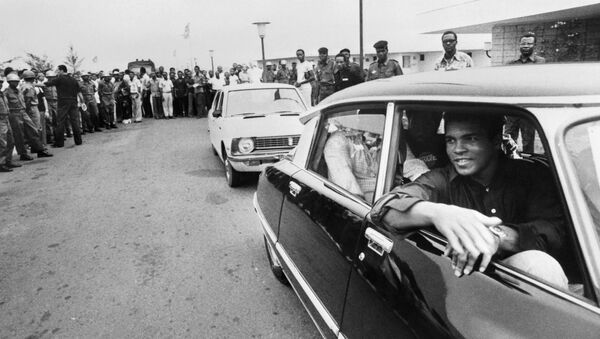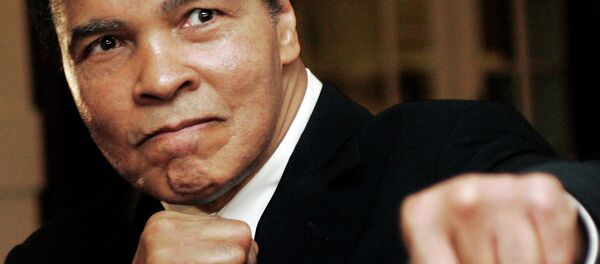The 140 documents, some of which contain classified information, were released as a result of a lawsuit brought by Judicial Watch, a conservative watchdog organization. Stubbornly referring to Ali by his birth name, Cassius Clay, the law-enforcement agency also monitored Ali’s first wife, Sonja Roi Clay, after their 1966 divorce.
One memo read, "The Miami (FBI) office is requested to follow the divorce action between Cassius and Sonja Clay with particular emphasis being placed on any NOI (Nation of Islam) implication being brought into this matter."
FBI interest in Ali stemmed from his refusal to enter the US military draft during the Vietnam War, declaring that he had no obligation to fight for a country that discriminated against African-Americans. The precedent for his actions was set by NOI leader Elijah Muhammad, who instructed followers to not participate in US wars, and was himself arrested for draft evasion in 1942.
As a result of his protest, Ali was stripped of his world heavyweight title.
Ali joined the NOI in the early 1960s, a controversial move, as the organization called white people "devils" and advocated for a separate nation for blacks so as to escape endemic racism in the US. NOI also claimed that the US was doomed to be destroyed by God for its discriminatory treatment of African-Americans.
The FBI investigated and infiltrated the NOI, as it did most other activist groups, including those allied with the Civil Rights Movement and the Black Panther Party. The agency claimed it had an interest in Ali "from an intelligence standpoint."
Muhammed Ali, a global cultural icon, died in June at age 74 in Scottsdale, Arizona, after a long battle with Parkinson’s disease. Some 14,000 people attended a public memorial service held in his native Louisville, Kentucky, including King Abdullah II of Jordan, actors Billy Crystal and Will Smith, boxers Mike Tyson and Lennox Lewis, film director Spike Lee and former US President Bill Clinton.
Clinton spoke glowingly of Ali’s faith, perseverance through disease, and of his personality. At the peak of Ali’s career, the FBI paid close attention to his activities, especially those that put him at odds with the policies of the US government.
During an interview with Sputnik Radio following Ali’s death, historian and scholar Anthony Monteiro called Ali a "world transformative figure," saying he "opposed white supremacy on principle. He stood up for the dignity and human rights of black people, on principle. He opposed an imperialist, genocidal war, conducted by the very people that oppress black people here, on principle."
Sputnik radio host and activist Eugene Puryear described the importance of Ali’s image, saying at the time,"Being the heavyweight champion, which was considered the baddest, toughest man alive, to succeed in this element of masculinity when your community has been stripped of it, has this relevance that stretches throughout the ages."




